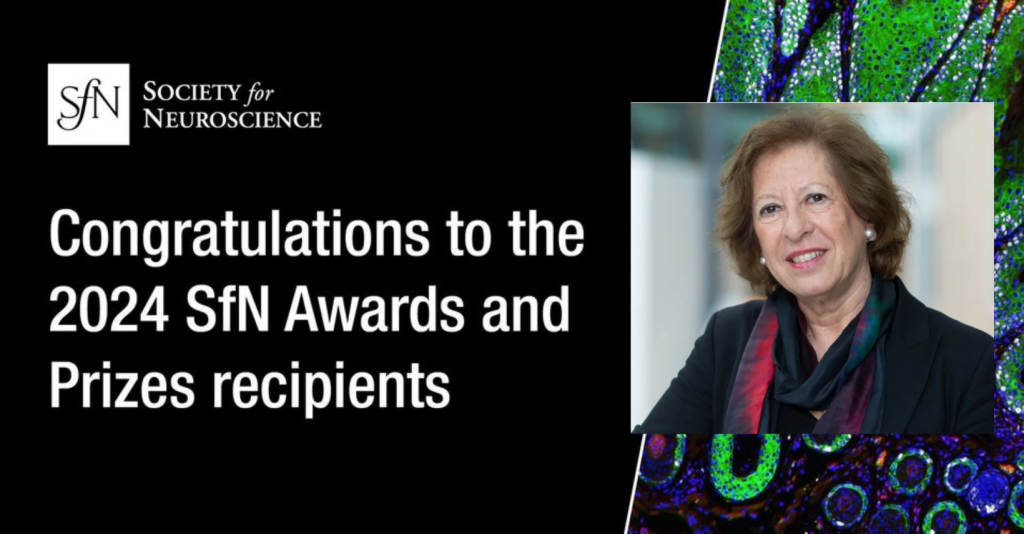Professor Maria Grazia Spillantini awarded Mika Salpeter Lifetime Achievement Award from the Society for Neuroscience
Many congratulations to Clare Hall Professorial Fellow Maria Grazia Spillantini, who has been awarded the Mika Salpeter Lifetime Achievement Award for women in neuroscience. The Award, granted by the Society for Neuroscience, recognizes neuroscientists with outstanding achievements in research who have significantly promoted the professional advancement of women in neuroscience.

Professor Spillantini’s work has greatly contributed to the understanding of neurodegenerative diseases and how two proteins called tau and alpha-synuclein form aggregates in neurons. These aggregates are involved in the development of neurodegenerative diseases that are now known as tauopathies and alpha-synucleinopathies. Spillantini’s pioneering research established that tau dysfunction is sufficient to cause neurodegeneration and dementia in diseases such as Alzheimer’s disease (AD), frontotemporal dementia, and that alpha-synuclein dysfunction is linked to Parkinson’s disease, Lewy body dementia, and multiple system atrophy.
Spillantini’s work contributed to the identification of the six tau isoforms in the human brain and to show that all six are present in the paired helical filaments in AD. She identified one of the first mutations in MAPT (the tau gene) which causes an inherited form of frontotemporal dementia, that is one of the most common causes of early onset dementia. This finding, coupled with her foundational research into how microglia phagocytose neurons containing tau aggregates and become senescent, could advance the development of therapies for tauopathies.
Spillantini was the first to show that Lewy bodies and Lewy neurites, the characteristic neuropathological lesions of Parkinson’s disease and dementia with Lewy bodies, are made of filaments formed by the protein alpha-synuclein that she and her colleagues had previously described and whose gene they had named SNCA. Spillantini also described alpha-synuclein in the filaments of the inclusions of multiple system atrophy, establishing this disease as a third major synucleinopathy. This deeper understanding of diseases caused by abnormal alpha-synuclein could result in better diagnostic tools and mechanism-based therapies for many neurodegenerative diseases.
Spillantini has published more than 300 scientific articles; she is a fellow of the Royal Society, the Academia Europaea, the UK Academy of Medical Sciences and a member of the European Molecular Biology Organization (EMBO). Spillantini has won numerous awards, including the Potamkin Prize and the Thudichum Medal and has been made Knight Officer of the Star of Italy by the President of the Italian Republic. Spillantini is a vocal advocate for greater gender equality and diversity in neuroscience and champions women in science through empowerment, sponsorship, and mentorship. Former trainees speak of her dedication to fostering a collaborative and inclusive laboratory environment. Her more than 45 former students and postdoctoral scholars say they felt prioritized above all.